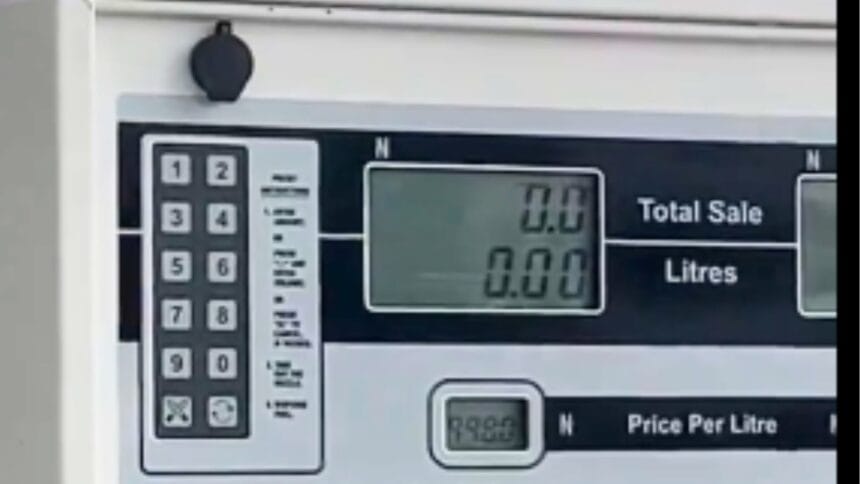Increased remittance of DisCo to TCN, GenCos: Revenue collection soars by 81.8% in one year, hits ₦160bn in July 2024 – Dr. Ali, NERC Commissioner
Oredola Adeola
The Federal Government’s annual electricity subsidy has risen significantly to ₦2.4 trillion in 2024, up from ₦650 billion in 2023, despite the implementation of the Band A tariff service category, estimated to reduce its payment obligations by ₦1.14 trillion.
Dr. Yusuf Ali, Commissioner for Planning, Research, and Strategy at the Nigerian Electricity Regulatory Commission (NERC) disclosed in his presentation at the PwC’s Annual Power and Utilities Roundtable while speaking on the theme: “Reigniting hope in Nigeria’s electric power sector” in Lagos, on Thursday.
According to him, between 2023 and 2024, macroeconomic shocks (largely FX) drove cost-reflective tariffs up by 118%, while annual subsidies increased by 270%.
Dr. Ali explained that April’s increase in tariff for band A was meant to significantly reduce the subsidy, but the country’s macroeconomic environment has negatively impacted this, leading to the fact that the allowed tariff hasn’t moved, but the cost is reflecting the increase.
He emphasized that without the tariff reforms implemented between 2020 and 2023, annual subsidies would have risen significantly, especially amidst the contractionary macroeconomic shocks of the past 20 months.
“So right now, the best estimate that we have for 2024 is that the cumulative subsidy for the year will be 2.4 trillion” the NERC Commissioner for Planning, Research, and Strategy stated.
He explained that the subsidy for December 2024 is projected to reach approximately N260 billion, reflecting an increase from N202 billion in the previous month.
According to him the tariff shortfall is calculated monthly based on the difference between the allowed tariff and the determined tariff for that period.
Dr. Ali in his presentation further revealed that monthly revenue collections in the electricity sector have grown significantly over the years, marking a significant shift in the financial sustainability of the power sector.
According to him, “Monthly revenues collections by the Distribution Companies (DisCos) increased from ₦31 billion in July 2017 to an impressive ₦160 billion in July 2024. This represents a staggering 416% increase in revenue collections.
TCN spends $10billion on fixing vandalized transmission infrastructure in six months – Chief Adelabu, Power Minister
The Transmission Company of Nigeria (TCN) has spent nearly $10 billion in the past six months repairing vandalized transmission lines and towers destroyed either by vandals or bandits across the country between January and November 2024.
Commenting on some of the fundamental factors driving the growth, Dr. Ali attributed it to various initiatives, including improved payment discipline by the DisCos to the Market.
He said,” The introduction of measures in 2020 has enhanced remittances to upstream players like the Transmission Company of Nigeria (TCN) and power generation companies (GenCos)”
He also emphasized the critical role of the Minimum Remittance Order/Discipline and Compliance Regime (MRO/DCR) in compelling distribution companies (DisCos) to remit higher collections.
He said, “For instance, the allowed cost-reflective tariff for DisCos increased from ₦60/kWh in January 2020 to ₦123/kWh in April 2024.
“This adjustment ensured that DisCos could collect revenues at more realistic levels to cover their operational costs.”
Dr. Ali stated that the revenue collection by the DisCos increased from ₦88 billion in July 2023 to ₦160 billion in July 2024, reflecting a significant milestone, with an 81.8% increase within one year.
This according to him, was driven by regulatory reforms, cost-reflective tariffs, and improved compliance.
He therefore mentioned that sustaining that growth requires continuous improvement in power supply reliability, infrastructure investment, and consumer satisfaction.
The NERC Commissioner also noted that organic market collection (i.e., collections driven by improved consumer payment culture and service delivery) remains vital and proven to be the most reliable form of funding in the NESI for building investor confidence and the overall market stability.
He added that without consumer buy-in and better energy delivery, over-reliance on regulatory adjustments (like tariff hikes) may not yield long-term stability.
Speaking on financial stability, he stated that improved remittances from DisCos mean that GenCos and TCN are better funded.
He further explained that the stability is crucial because GenCos require consistent revenue to maintain and upgrade power generation facilities, while TCN’s funding is vital for infrastructure upgrades to reduce grid collapses and improve transmission capacity.



